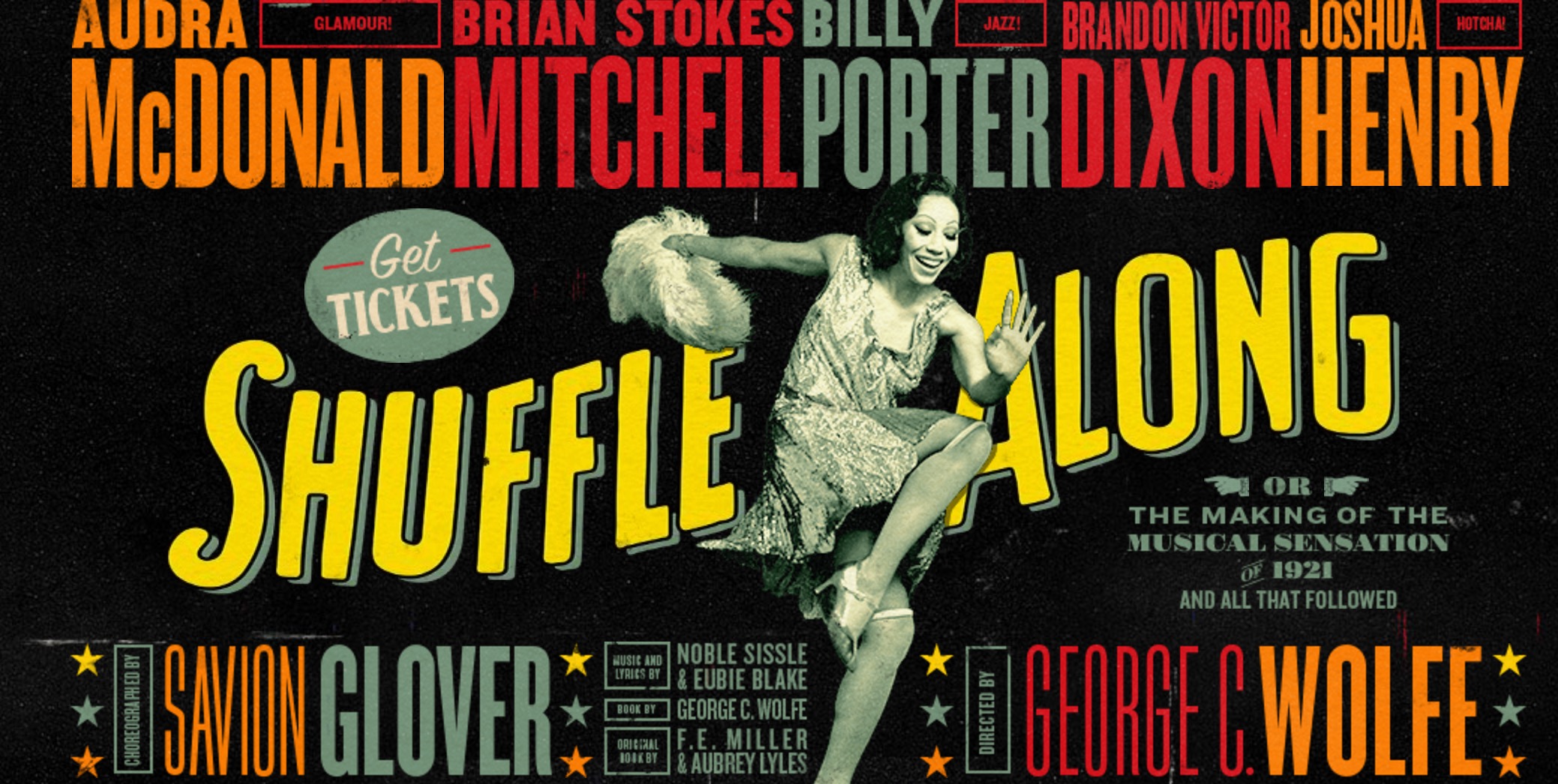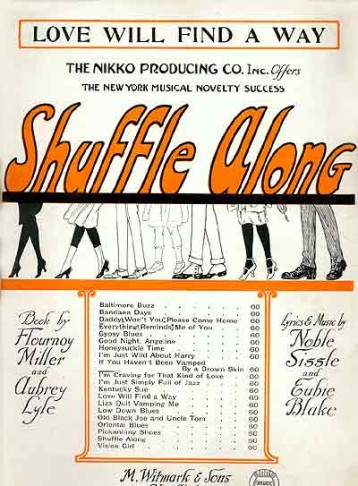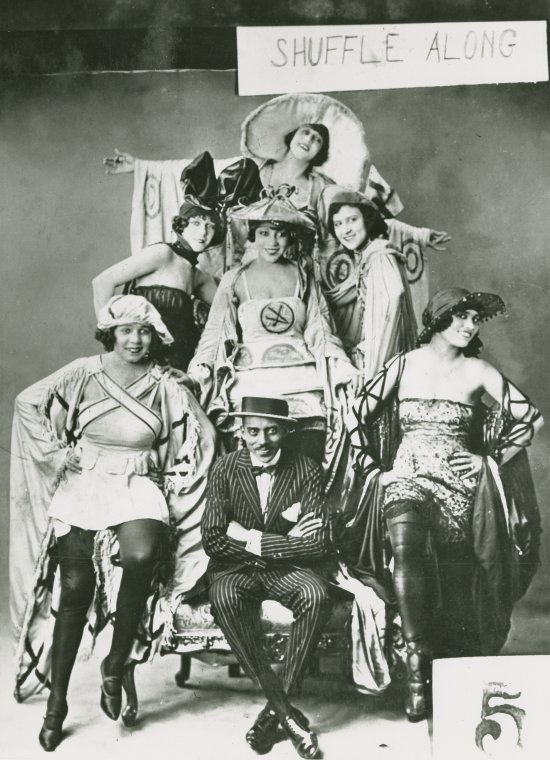Richard C. Norton
Operetta Research Center
22 March, 2016
Why is the upcoming revival of Shuffle Along, or, The Making of the Musical Sensation of 1921 and All That Followed, the most eagerly anticipated Broadway show of the spring season?

The 2016 poster for the revival of “Shuffle Along.”
When playwright, producer and director of many talents George C. Wolfe announced some two years ago that he planned to revive Shuffle Along, many contemporary musical theatre wags, critics and theatre-goers figured he must be mad, or else very, very smart. That George C Wolfe, a intellectual among African-American theatre artists and former artistic director of the Public Theatre (following its founder Joseph Papp), had undertaken the task of re-examining a frothy musical comedy from 95 years ago, suggested there was more here than met the eye. Wolfe’s intent is no mere revival, but indeed a framing of the show in the context in which it was first produced, and how, why and what happened after. Wolfe is widely respected for his visionary direction of Angels In America; Jelly’s Last Jam; Bring in ‘Da Noise, Bring In ‘Da Funk; Topdog/Underdog; Caroline Or Change.

he sheet music for “Love Will Find a Way,” one of the hit songs in “Shuffle Along.”
Shuffle Along was a phenomenon in its day, the first musical written, directed and performed entirely by African-American artists, to run more than a year on Broadway, over 500 performances. Until then black musicals seldom ran as long as ten weeks (80 performances). White theatre owners expected Shuffle Along would be a fast flop, denying it a Times Square location, and Shuffle Along was relegated to the less fashionable Daly’s on West 63rd Street. Shuffle Along was so popular its producers instituted midnight performances to meet demand, and so that fellow Broadway actors could see it. On tour, it played many houses previously closed to black shows, helping to break a color barrier. It may be Wolfe’s thesis that Shuffle Along was a tipping point, at which African-American artists could perform and compete alongside white artists. Coinciding with the start of Prohibition 1919-1933 and the start of the Harlem Renaissance, Shuffle Along may have opened the door to white audiences visiting Harlem’s nightclubs, and the assimilation of jazz into mainstream American culture. With Shuffle Along, black popular culture suddenly became accessible, fashionable, even ‘cool’ for white audiences.

The cast of the original “Shuffle Along” 1921.
Its plot follows the foibles of two dishonest grocery store proprietors, Sam and Steve, who both run for mayor of Jimtown, USA. Though Sam wins, their corrupt regime is discredited by the honest Harry Walton, and Sam and Steve are run out of town. If the rag-tag plot of Shuffle Along offers little clue to the show’s success, it may have been but a frame on which to hang some memorable song and dance. One world-wide standard emerged from the score, “I’m Just Wild About Harry,” but also a half dozen pop hits, “Love Will Find a Way,” “Bandana Days,” “I’m Craving for That Kind of Love,” “Daddy, Won’t You Please Come Home,” “In Honeysuckle Time,” “Goodnight Angeline” and “Mirandy.”
Here is Judy Garland, in black-face, singing “I’m just Wild About Harry.” From the film version of Babes in Arms.
Many of these songs were covered by dance bands of the day, and recorded by the likes of Paul Whiteman, Ben Selvin, Horace Heidt, Bennei Kreuger, etc.
So what’s now in preview at the Music Box will give us the show’s songwriters Noble Sissle and Eubie Blake as played by Billy Porter and Brandon Victor Dixon. Its original book-writers and stars Flournoy E Miller and Aubrey Lyles, are performed by Brian Stokes Mitchell and Joshua Henry. Its original star Gertrude Saunders is played by six-time Tony-Award winner Audra MacDonald (Carousel; Master Class; Ragtime; A Raisin In The Sun; The Gershwins’ Porgy And Bess; Lady Day At Emerson’s Bar & Grill). Act 1 chronicles the backstage travails of the making of the show culminating in its opening night, and Act 2 traces what happened after. That genius of tap, Savion Glover, has staged the musical numbers, and Scott Rudin, scrupulous film and stage producer, is the show’s entrepreneur. So this Shuffle Along is not a simple revival, but boasts an all-new book by George C Wolfe which will contextualize the show and its cultural impact. One last question looms over this new Shuffle Along: who will replace Audra MacDonald once she leaves for London in June to re-create her performance as Billie Holiday in Lady Day At Emerson’s Bar & Grill? You’d better go soon!
